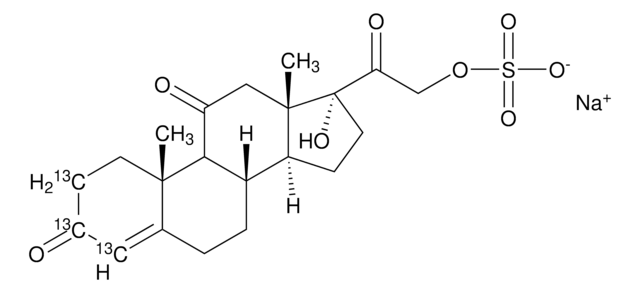900506
Sodium bicarbonate
anhydrous, free-flowing, Redi-Dri™, ReagentPlus®, ≥99.5%
Synonym(s):
Sodium hydrogen carbonate
About This Item
Recommended Products
grade
anhydrous
Quality Level
Agency
suitable for EPA 300
product line
ReagentPlus®
Redi-Dri™
Assay
≥99.5%
form
powder
quality
free-flowing
pKa (25 °C)
(1) 6.37, (2) 10.25 (carbonic acid)
density
2.16 g/mL at 25 °C (lit.)
SMILES string
[Na+].OC([O-])=O
InChI
1S/CH2O3.Na/c2-1(3)4;/h(H2,2,3,4);/q;+1/p-1
InChI key
UIIMBOGNXHQVGW-UHFFFAOYSA-M
Looking for similar products? Visit Product Comparison Guide
Legal Information
Not finding the right product?
Try our Product Selector Tool.
Storage Class Code
13 - Non Combustible Solids
WGK
WGK 1
Flash Point(F)
Not applicable
Flash Point(C)
Not applicable
Choose from one of the most recent versions:
Certificates of Analysis (COA)
Don't see the Right Version?
If you require a particular version, you can look up a specific certificate by the Lot or Batch number.
Already Own This Product?
Find documentation for the products that you have recently purchased in the Document Library.
Customers Also Viewed
Articles
Redi-Dri™ prevents hygroscopic powders, such as inorganic salts, from absorbing moisture and forming clumps, leaving the salts free-flowing every time.
Related Content
This page is intended to make it easier to find the consumables you need based on the analytical method you’re using. Methods included on this page come from the EPA, Standard Methods and ASTM.
Our team of scientists has experience in all areas of research including Life Science, Material Science, Chemical Synthesis, Chromatography, Analytical and many others.
Contact Technical Service


